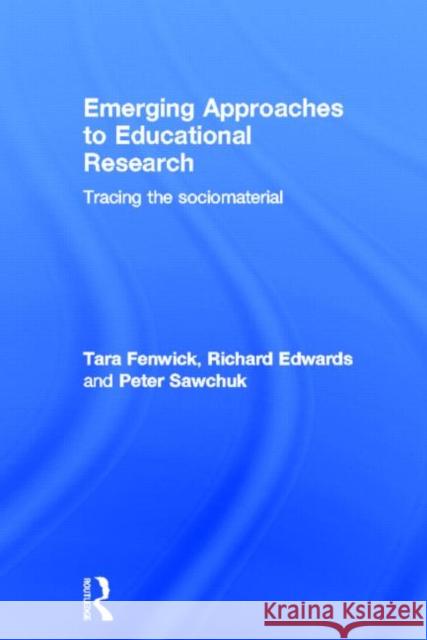Emerging Approaches to Educational Research: Tracing the Socio-Material » książka
Emerging Approaches to Educational Research: Tracing the Socio-Material
ISBN-13: 9780415570916 / Angielski / Twarda / 2011 / 220 str.
Emerging Approaches to Educational Research: Tracing the Socio-Material
ISBN-13: 9780415570916 / Angielski / Twarda / 2011 / 220 str.
(netto: 653,03 VAT: 5%)
Najniższa cena z 30 dni: 604,49
ok. 16-18 dni roboczych.
Darmowa dostawa!
The last fifteen years have seen much conceptual and methodological innovation in research on education and learning across the lifecourse, bringing both fresh insights and new dilemmas. This innovation was initially fuelled by the growing influence of conceptual framings often named as either post-structural or postmodern. The works of Foucault, Derrida and Lyotard have variously found their way into the canons of educational research, and in more recent years, the influence of the work of Deleuze and Guattari has also grown. This work has proved controversial both in the challenges it has raised for the purposes and practices of education and training but also over the assumptions underpinning such work. As part of and also in response to the influence of post-structuralism and postmodernism in the social sciences, there have emerged and developed a further range of conceptual and methodological framings which are more relational, system and practice-focussed. Several of these framings work with a non-linear understanding of causality and embrace unpredictability in the world and undecidability in our understanding of it. They also challenge any notion of a strong boundary between the social and natural sciences. This book explores the most significant four of these framings, how they are being taken up in research in education and learning across the lifecourse, as well as their possibilities and limitations:
- complexity science
- cultural historical activity theory (CHAT)
- actor-network theory (ANT)
- spatiality theories.











